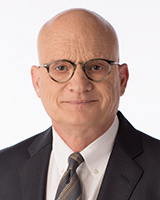New hire aims to tackle mental health issues among San Francisco homeless


SAN FRANCISCO (KGO) -- At last count in San Francisco, 7,500 people didn't have a place to live.
Losing a job was the most common reason they became homeless. More than a third suffer from a psychiatric or emotional condition.
That number has stayed pretty consistent over the last several surveys, dating back to 2013.
EXCLUSIVE: 'Video vigilantes' documenting San Francisco drug use hope for stronger city response
It's also very similar in the Bay Area's other biggest counties.
In Alameda County, 41 percent of the homeless say they have a mental issue. The number is 38 percent in Santa Clara County.
A solution that works in San Francisco could help out elsewhere, and on Wednesday, there's a new man on the job who might make a difference.
In San Francisco...the sign serves as a metaphor, to some, for how the city has historically dealt with homelessness borne from mental illness.
Mayor London Breed made an announcement Wednesday that she would say characterizes a new beginning. "I want to reform the system. Make it work. Get them off the streets, and this is a step in the right direction," she said.
RELATED: 'Zombie-like' people seen doing drugs at BART station
This is all in the form of Dr. Anton Bland, a new hire as Director of Mental Health Resources. He has been the chief of psychiatric services at San Francisco General Hospital.
"This is an engagement process. It begins with relationships," he said.
Critics say he has a tall order in rebuilding the system, especially when one looks in an area like South of Market.
Last fall, we profiled residents armed with cellular phones who mounted a video vigilante campaign, posting photos of the homeless and mentally ill and making sure the mayor sees them.
They included Adam Mesnic, who lives and works there, and tweets under the handle @BetterSoma.
RELATED: San Francisco man documents shocking drug 'madness' for months, looks for help on social media
His daily feed...like a horror show. "The message to the mayor is to step up and find solutions for our neighbors and businesses," Mesnic said.
"Recovery is always difficult from the street. We want to make sure we have people adequately housed," Bland said.
On Wednesday, the mayor cited an additional $3 million and 150 new beds for the mentally ill this year in places like Dore House, a transitional home for those who don't need to be in the hospitals.
Steve Fields runs the place. Has dealt with the mental health issue for half a century. "It is possible to get the right kind of service for everybody," he said.
The mayor says she will certainly try. We shall see if the best intentions translate to results.










